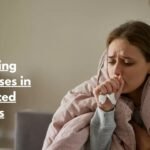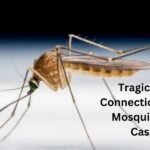ScientificAsia: In light of an expanding avian flu outbreak on US dairy farms, a former FDA food safety specialist is advising Americans to alter their grocery and cooking styles.
California has had its sixth instance of avian flu among dairy farmers in three weeks, and the virus has already infected 90 cattle farms.
Although the H5N1 virus has not been known to infect humans through food, authorities were unable to rule it out in one rare instance that occurred in Missouri earlier this year.
Consequently, former FDA food chief Dr. Darin Detwiler told DailyMail.com that this was a warning to be careful what you eat. He claims that raw eggs pose the greatest risk, so you should completely avoid common morning foods like poached, soft-boiled, or eggs Benedict.
This is happening because the eggs “may not attain a temperature sufficient to kill any viruses.” In its place, he says, “stick to fully cooked options like hard-boiled eggs, scrambled eggs, and completely cooked omelets.”
In the lead-up to Christmas, the food safety counsel advises avoiding egg-based condiments like mayonnaise and aioli. Additionally, several recipes for desserts like mousse and tiramisu call for raw eggs.
Dr. Detwiler advises avoiding dishes that use raw or lightly cooked eggs until the bird flu crisis is under control.
When there is a significant risk of avian flu, Dr. Detwiler advises avoiding salad dressing as well.
Alternatively, the safest options for salad dressing at a restaurant would be a simple vinaigrette or olive oil.
He clarifies: “If improperly pasteurized, raw eggs, commonly used in Caesar salad dressings, hollandaise sauce, and other comparable products, could be dangerous.” Although avian flu does not directly affect red meat, the researcher from Boston notes that steakhouses are “not safe zones, and dangers of cross-contamination may occur in mixed-use kitchens that manage poultry.”
“Steakhouses that serve both beef and poultry should have their food safety procedures closely examined,” he continues. Make sure the restaurant complies with strict food safety regulations if you’re eating out.
Generally, you can access inspection scores and reports from local health department websites to find out a restaurant’s food safety rating in the US. Because “pasteurization kills harmful bacteria and viruses,” Dr. Detwiler suggests selecting pasteurized items when stockpiling groceries.
Avoid products like liquid egg whites, raw cookie dough, unpasteurized egg nog, and soft cheeses made with raw milk. The consumer food safety advocate advises that before buying poultry, make sure the packaging is undamaged and that the bird has been handled correctly.
Additionally, Dr. Detwiler believes that there are ‘plenty of items to pick from,’ making it easier than ever to become dairy-free if you want to be extra cautious.
‘It’s worth examining alternatives like plant-based milk and cheeses since there have been infections among dairy workers,’ stated Dr. Detwiler, a former member of the USDA’s National Advisory Committee for Meat and Poultry Inspection. Additionally, you may stock up on plant-based salad dressings.
Dr. Detwiler notes that other locations have already noticed the ripple effect of California’s current bird flu problem.
The effects of the bird flu crisis extend beyond California. The state is a significant exporter of dairy and eggs, so any disruptions there might have repercussions throughout the entire nation. If California’s supply of eggs and poultry declines, other areas may have to rely on more expensive substitutes.
This heightened competition for limited resources raises costs across the United States, not just in California. Due to the interconnectedness of the country’s food supply chain, issues affecting major producers like California also impact the availability and cost of food in other states. The avian flu outbreak may also affect the supply of turkeys for future holidays like Thanksgiving and Christmas.
There have been nine human cases of bird flu since 2022, spread across five states, and six human cases in 2024 among those exposed to dairy cows, according to the CDC. One individual who had no known interaction with sick livestock fell ill.
The CDC issued a warning, predicting more cases in the coming months due to the avian flu’s rapid spread among hundreds of dairy cattle herds in at least 14 states.
Although the CDC maintains that there is still little risk to the public, experts are concerned that all indications suggest the virus could trigger a pandemic similar to the one that occurred with COVID-19.











